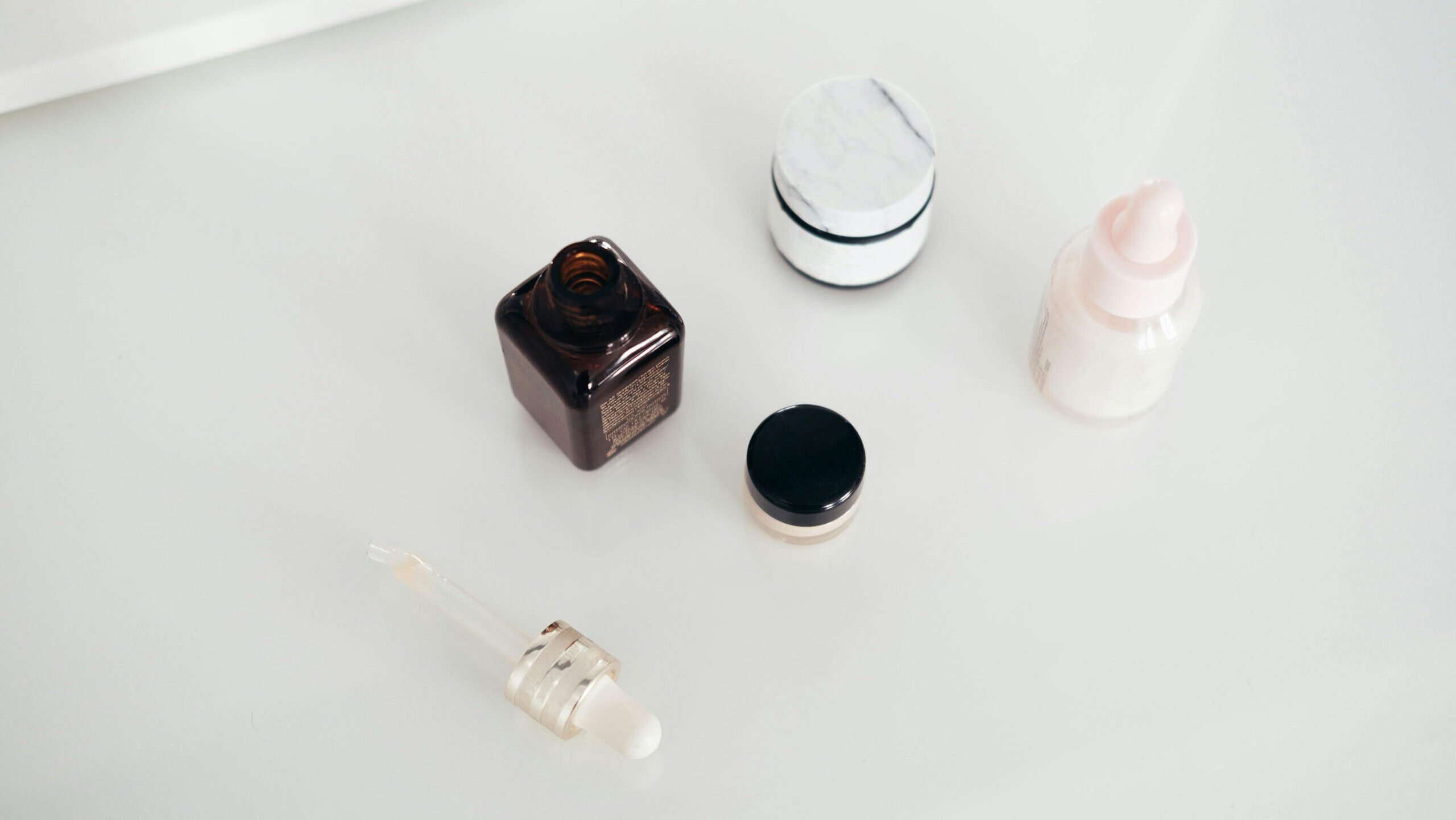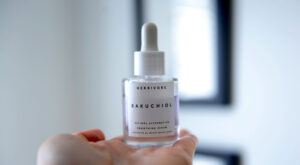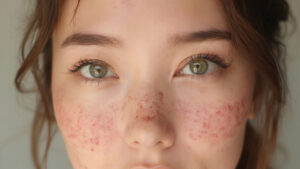Retinol is a popular and potent ingredient that can increase skin sensitivity, so combining it with certain other products can lead to irritation, dryness, redness, or even reduce the effectiveness of either product. When adding retinol into your nighttime skincare routine, it’s important to be aware of other active ingredients you’re using.
Here’s a breakdown of skincare products you should generally skip or use with caution when using retinol at night:
1. AHAs (Alpha Hydroxy Acids) and BHAs (Beta Hydroxy Acids)
This includes glycolic acid, lactic acid, mandelic acid (AHAs), and salicylic acid (BHA).
Why skip/caution? Both retinoids and AHAs/BHAs are exfoliants. Using them together can result in over-exfoliation, which threatens your skin barrier, causing dryness, flaking, redness, and increased sensitivity.
Alternative: Instead of using them on the same night, try alternating nights. You could use your AHA/BHA exfoliant on one night and your retinol on another night. Those with resilient skin can tolerate alternating them, but it’s best to start slow and observe your skin’s reaction.
2. Benzoyl Peroxide
Why skip/caution? Benzoyl peroxide, a common acne treatment, can deactivate certain forms of retinol, rendering them less effective. Moreover, both ingredients can be drying and irritating, so combining them increases the risk of significant dryness, redness, and flaking.
Alternative: If you need both, use Benzoyl Peroxide in the morning and retinol at night, or use them on alternate nights. Some specially formulated products exist that allow these ingredients to be used together, but these are typically developed through specific encapsulation technologies. (Source: us.comfortzoneskin.com, drmtlgy.com)
3. Vitamin C (L-Ascorbic Acid in high concentrations)
Why skip/caution? While research increasingly suggests that Vitamin C and retinol can be used together effectively, especially when formulated properly, there’s still a common recommendation to separate them due to potential irritation. Both are powerful active ingredients, and combining them, especially a high concentration of L-Ascorbic Acid (a potent form of Vitamin C) with retinol, can be too much for some skin types, leading to redness or tenderness. Additionally, they often work best at different pH levels.
Alternative: The most common advice is to use Vitamin C in your morning routine (where its antioxidant properties can protect against environmental damage) and retinol in your night routine.
4. Harsh Physical Exfoliants/Scrubs
Why skip/caution? Retinol increases cell turnover, essentially providing chemical exfoliation. Using harsh physical scrubs simultaneously can cause excessive irritation, micro-tears, and damage to your freshly exposed, more sensitive skin.
Alternative: If you feel the need for physical exfoliation, consider a very gentle scrub once a week on a night you don’t use retinol, or consider a chemical exfoliant on alternate nights, as mentioned above.
5. Other Retinoids (e.g., Tretinoin, Adapalene)
Why skip/caution? If you are already using a prescription retinoid like tretinoin (Retin-A) or adapalene, you should not use over-the-counter retinol products. These are all forms of Vitamin A derivatives, and using multiple at once will lead to severe irritation, dryness, and peeling without added benefit. Your dermatologist will prescribe the appropriate strength and type.
What you can use with retinol
- Hydrating ingredients: Hyaluronic acid, glycerin, ceramides, squalane. These help to counteract the potential dryness and irritation from retinol.
- Niacinamide: This is generally well-tolerated with retinol and can even help improve the skin barrier, potentially reducing some of retinol’s irritating side effects.
- Gentle cleansers and moisturizers: Stick to non-stripping cleansers and nourishing moisturizers to support your skin barrier.
- Sunscreen: This is an absolute MUST every morning when using retinol, as retinol makes your skin more photosensitive.
Always introduce retinol slowly into your routine (e.g., 1-2 times a week), and listen to your skin. If you experience excessive redness, flaking, or stinging, reduce the frequency of retinol use or consult a dermatologist.
The content provided in this blog is for informational and educational purposes only. All product recommendations and skincare suggestions are intended to serve as general guidance and should not be considered a substitute for professional advice. Individual skin types and conditions vary, so please use discretion when incorporating new products or routines. We strongly recommend consulting with a licensed dermatologist or qualified healthcare professional before beginning any new skincare treatments, especially if you have sensitive skin, pre-existing conditions, or are currently using prescribed medications.
Note: All product links are for informational purposes and do not constitute endorsements. Always perform a patch test before introducing new products into your routine.





